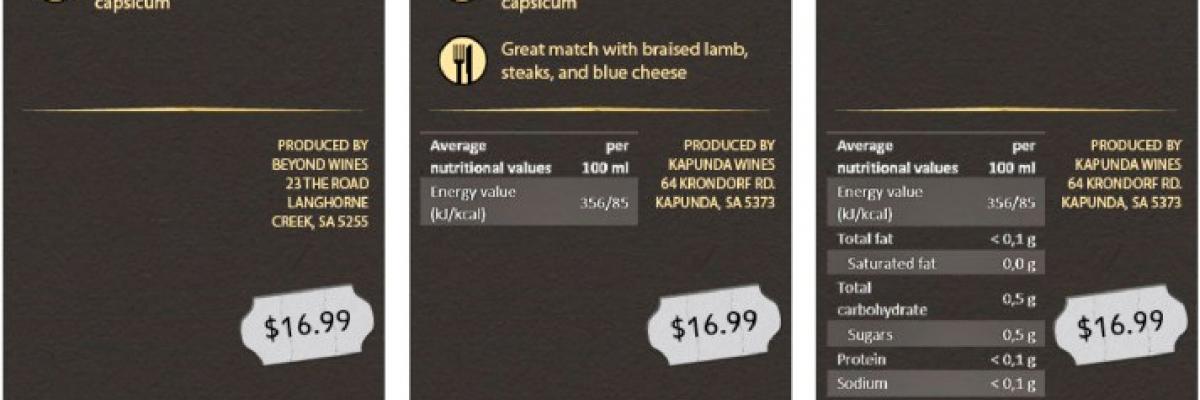How much do consumers care about nutritional and ingredient information for wine?
Labels represent a key communication tool about what lies within a bottle of wine. We often discuss label styles across colour combinations, fonts and size, but soon we may also include nutritional information in this conversation.
Unlike the majority of pre-packaged foods, alcoholic beverages above 1.2% alcohol by volume have been exempt from mandatory nutritional and ingredients labelling. However, the European Commission (EC) examined the possibility of abolishing this special regulation in a 2017 report, concluding that such an exemption could not be justified, quoting consumer protection. The following year, the main European alcoholic beverage associations submitted a self-regulatory proposal on the matter, leading to the signing of a Memorandum of Understanding between the EC and the spirits’ and the brewing industry representatives. While we are still waiting on a response in relation to the wine industry, there is a general consensus that the wine sector will be required to follow food labelling regulation in the near future.
This scenario led my colleagues and I to develop a study aimed at investigating consumer reactions to the introduction of nutrition and ingredient labelling for wine. We recruited a representative sample of wine consumers from three countries - Australia, Italy, and Germany – via a professional panel provider resulting in a total of over 2,100 completed questionnaires.
Using a technique called Discrete Choice Experiment (DCE), we designed a series of back labels where we manipulated certain product characteristics including variations in:
- grape varieties
- regions of origin
- price levels
- additional information regarding sensorial properties and food matching suggestions
- information on nutritional properties and the ingredients
We presented the various back labels in groups of three and asked respondents to select the wine they would feel most likely to purchase for an informal occasion at their own home or a friends. Respondents were also given the option to select “None of these”. You can see an example of a choice set for the data collection we conducted in Australia in the figure below.

In addition to this, we designed two newspaper-like articles, one talking positively about wine ingredients, and the other portraying a negative image of the way the wine industry uses chemical additives. We randomly exposed respondents to either one of these two articles before they attempted the DCE. We also had a control group of respondents who have not been exposed to any article. This way we could measure the effect these articles had in influencing respondents’ choices against a baseline.
Our results indicated that for the group with no article exposure, consumers across all three countries had a significant positive response to extensive nutrition information. However, when labels presented with only ingredient information, a positive response was only recorded for Italy, whereas German and Australian respondents did not find value from ingredient labelling alone.
The respondents who were confronted with negative media information gave a significantly higher importance to ingredient labelling; wines without ingredients listed were preferred, and a significantly higher share of consumers in Germany and Italy preferred not to buy any wine at all.
Our findings showed that the effects of negative media information had a higher impact on consumer wine choice than that of positive media information.
Dr. Armando Corsi is an Associate Professor in Wine Business at the University of Adelaide. His key area of research is the analysis of consumer behaviour, particularly towards wine and other premium foods and beverages. If you would like to read more about the study you can download a copy of the full article , or can contact Dr. Armando Corsi directly.
The article is an excerpt from a research project by Dr. Armando Corsi (University of Adelaide), Prof. Simone Loose (Hochschule Geisenheim University, Germany), Dr. Evelyn Pabst (Hochschule Geisenheim University, Germany) Assoc. Prof. Riccardo Vecchio (University of Naples Federico II, Italy), and Assoc. Prof. Azzurra Annunziata (University of Naples Parthenope, Italy)
Study
We offer a range of business related degrees, enabling students to choose their own path and become career ready.

